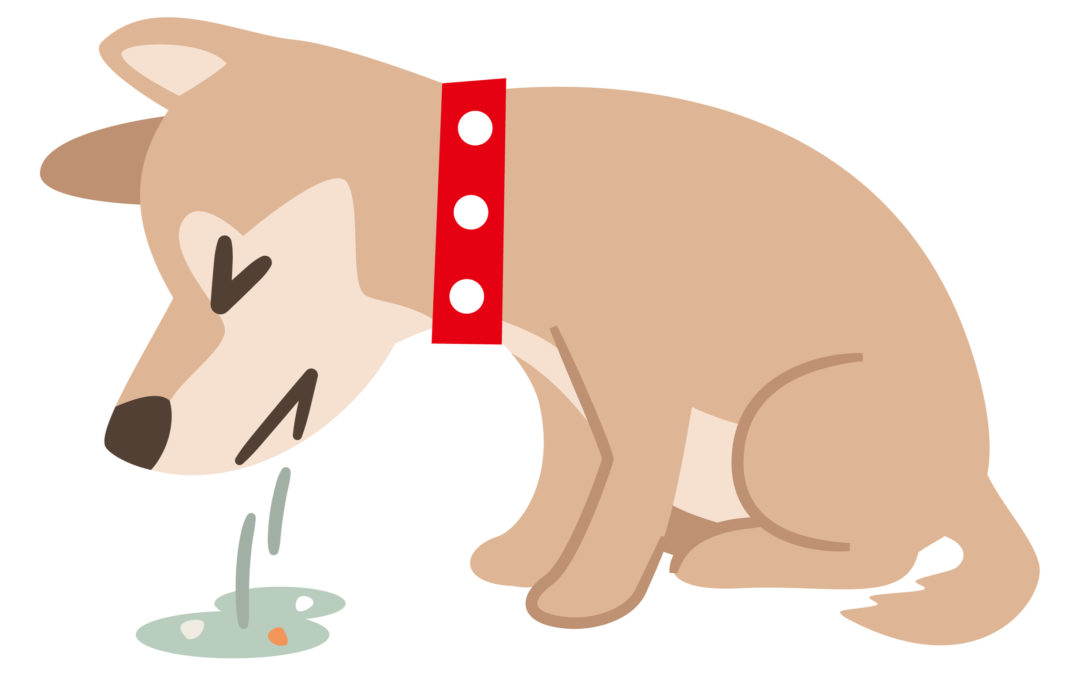Why is my dog throwing up? The good news is that occasional dog vomiting can be a normal occurrence. It is gross and messy, and it can have you worried whether your four-legged BFF is sick. You may wonder whether it’s something they ate, or whether it is a symptom of something more serious.
There are multiple reasons why a dog can become nauseous and vomit. If you are asking yourself, why is my dog vomiting, Union Lake Veterinary Hospital is here to help.
Dog Throwing Up: Distinguish the Symptoms
Many times a dog appears to be vomiting but they are actually coughing and retching. Watch your dog to see if they throw up food, liquid, or bile. Other times a dog may eat too fast and regurgitate their food. Looking at the contents of the vomit can give you insight into why they’re sick and what they ate.
If your dog is coughing, this sometimes produces foam and saliva that can make it seem like they’re vomiting. Make note of any other symptoms that accompany the vomiting, such as diarrhea, lethargy, fever, panting in excess, and other unusual symptoms. This will help your veterinary team determine the immediacy of treatment.
Why Is My Dog Throwing Up? Causes
Vomiting can be a sign of something simple, such as an upset tummy, or more serious like poisoning or bloat. If your pet has fallen ill or has repeated vomiting, it’s important to treat this as a veterinary emergency and seek help. Here are some of the possible reasons your dog is throwing up.
- Ingesting something they shouldn’t have like grass, fatty table scraps, feces, etc.
- Eating too quickly
- Food allergies
- Eating something toxic
- Parasites
- Pancreatitis (inflammation of the pancreas)
- Kidney disease
- Liver disease
- Hormonal imbalance
- Foreign body obstruction
- Bloat
- Some cancers
Call a Pet Poison Helpline or an emergency veterinarian if you suspect your pet has eaten something toxic, or is showing signs of distress, such as vomiting for more than 24 hours.
Help! My Dog Is Vomiting
If your dog has thrown up more than a few times, we recommend that you schedule treatment right away or take them to a pet emergency hospital. Ongoing vomiting can lead to dehydration and is uncomfortable for your sweet pet so take action once vomiting has occurred several times (unless you know it was poison and you need to act right away). Your veterinarian can get to the correct diagnosis and start treatment.
If your dog has been seen and the problem was nothing more than stomach upset (whew), you can provide extra care for them by using the following tips.
- Feed them a bland diet consisting of plain, cooked chicken and rice or a diet prescribed by your veterinarian.
- Entice your pet to drink more water by putting some low-sodium chicken broth or ice in their water bowl.
- Keep stress and noise to a minimum while they are recovering.
- Restrict exercise and encourage rest until they are better.
If your dog is vomiting and has an unhappy tummy, it’s best to get help from the experts. Please contact ULVH at (248) 363-1508, your veterinarian, or a pet emergency hospital after hours.

